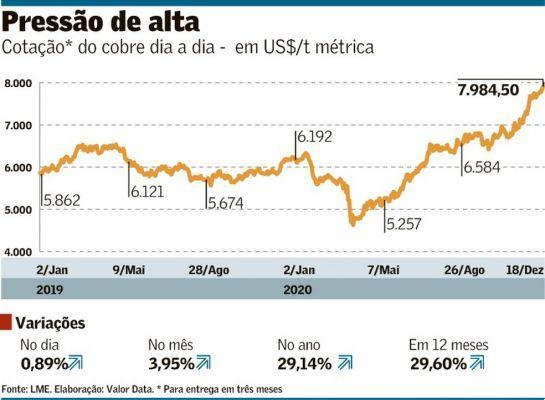
From the Latin cuprum, "Cu" is the abbreviation used to identify copper, a chemical element of the group of transition metals.
It is very common in nature, both among minerals and between the various kingdoms of animals, plants and fungi. In nature it is also found in its native state, that is pure, in the form of a rather malleable metal, orange-red (copper-colored, in fact).
It is of vital importance for human life and every organism retains a minimum quantity which, however, must be constantly preserved in order not to run into deficiencies.. Before delving into all the vital functions in which copper is involved, let's first take a look at the foods that contain the most copper in an easily assimilated form.
However, remember that copper is always found in traces and never abounds in no food as the main element.
Foods richest in copper
In the first place it is usually listed beef liver: just under 100 grams of this food cover the weekly copper requirement.
Also oysters not bad: 100 grams provide enough copper for 3 days. Follows a vegetable food, sunflower seeds, followed in turn by other seeds such as almonds, lentils, sesame, cashews. To follow we have dried apricots and prunes, dark chocolate, molasses, mushrooms, turnips and asparagus. Also worthy of mention are goat cheese and tempeh.
Read also Copper, where to find it in food >>
Functions of copper
Il copper it is an element essential for the composition of some proteins and some enzymes, therefore it is irreplaceable for the correct formation of various human tissues, starting from the bone and ending with the connective one.
Il copper is involved in the production of red blood cells, in fact, a copper deficiency or any genetic problem capable of determining a problem with its absorption, are closely linked to some forms of anemia and iron deficiency (absorption difficulties).
It is not only linked to red blood cells but also to proplatelets, as a good level of copper helps to heal the tissues, to maintain the immune system, especially in cases of infection and inflammation. Both severe deficiency and a noticeable excess of copper are dangerous: in addition to 5 mg per kg, copper develops toxic characteristics.
Generally, copper reserves decline with age, especially in the third age one should take more copper.
The synergy of copper with zinc
However it is good to be aware that trace elements, specifically copper, they never work alone but they always are in relation with other mineral salts for the proper performance of metabolic activities.
We have already mentioned the relationship between an adequate amount of copper and the absorption of iron necessary for the production of hemoglobin. Another element with which copper must always be in harmonic relationship is zinc.
Statistics tell us that this pair of elements is unbalanced in 25% of the human population, especially with age and this can lead to a sense of fatigue, a tendency to depression, poor healing capacity, hair loss, anxiety, digestive problems and skin problems, headaches, lack of appetite, memory loss.
Normally the ratio between the two minerals must be around 10: 1 zinc-copper, or 10 micrograms of zinc for each microgram of copper. This percentage is found in all forms of healthy life in nature.
In the last few years, a diet rich in copper and low in zinc detracts from a correct synergy and the level of the immune system human has significantly decreased.
Read also Zinc deficiency, symptoms, causes and nutrition >>


























